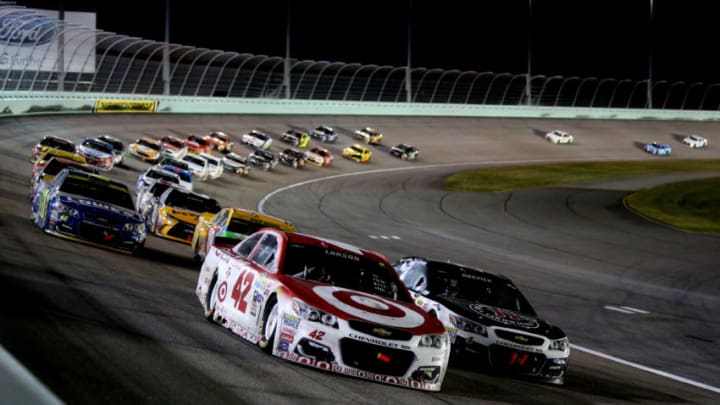NASCAR Playoffs: Pros and Cons
By Asher Fair

Con – Removes a lot of the regular season’s meaning
Kyle Busch won the championship in 2015 solely because of the playoffs. He drove in just 15 of the 26 regular season races and would not have qualified for the playoffs on points alone. However, because he won a race (he actually won four races) in the regular season, he locked up his spot in the playoffs.
And he went on to win the championship after driving in just 25 of the 2015 season’s 36 races.
More from NASCAR
- NASCAR Cup Series: New team set to compete in 2024
- NASCAR: Will Kevin Harvick’s major record ever be broken?
- NASCAR: Surprising name continuously linked to new seat
- NASCAR driver at risk of missing the Daytona 500?
- NASCAR set for rare appearance last seen 13 years ago
Meanwhile, all of the 15 other playoff drivers drove in far more races throughout the season than Busch did. In fact, 13 of the other 15 playoff drivers drove in every single one of the season’s 36 races. The only two drivers who did not do so were Kurt Busch, who drove in 33 races, as he missed three races in the regular season, and Matt Kenseth, who drove in 34 races, as he missed two races in the playoffs.
With the playoffs, the meaning of the regular season is diminished and raises the question as to why the regular season is even needed or, at the very least, why it is so much longer than the playoffs when almost everything from the regular season goes out the window when the playoffs begin.
Again, that’s how basketball, baseball, football and hockey work. But NASCAR racing is nothing like any of those sports, and I’m pretty sure no one wants it to be compared to those sports, and that’s whether you enjoy those sports or not.
Next: 10 NASCAR drivers who deserve better rides
The playoffs have been, are and will continue to be debated. There is no doubt that there are both pros and cons to playoffs.